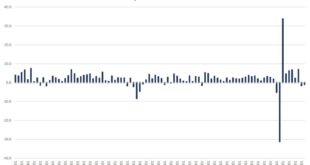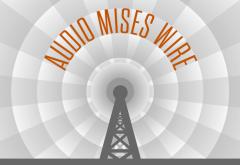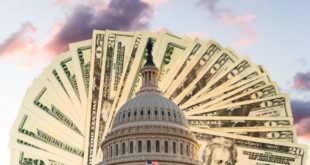From the Equal Pay Act 1970 to the Equality Act 2010, there has been a wave of legalization in Britain to turn the state into some omniscient being that can determine the intentions of an employer. While these pieces of legislation did not enforce direct quotas onto businesses, they have increased inefficiencies through the increase in human resources roles for companies and organizations to cover their own backs. These pieces of anti-discrimination legislation...
Read More »GDP Shrinks Again as Biden Quibbles over the Definition of “Recession”
The U.S. economy contracted for the second straight quarter during the second quarter this year, the Bureau of Economic Analysis reported Thursday. With that, economic growth has hit a widely accepted benchmark for defining an economy as being in recession: two consecutive quarters of negative economic growth. According to the BEA, the US economy contracted 0.9 percent during the second quarter in the first estimate of real GDP as a compounded annual rate. This...
Read More »Emil Kauder as an Austrian Dehomogenizer
Rothbard's two-volume An Austrian Perspective on the History of Economic Thought contains a lengthy reference list, but a close look at the books reveals that Rothbard continually cited certain authors and borrowed his theses from them. One of them was Emil Kauder. Kauder appears to be quite an important figure: a member of the third generation of Austrian economists in Vienna and a prolific scholar whose publications appeared in many academic outlets. Yet, Kauder...
Read More »Regional Territories: A Decentralization Plan for the USA
There is more talk of secession and civil war in the United States today than at any time since the 1850s, and popular confidence in government appears to be at an all-time low. As a foreigner, I have no particular red or blue loyalties, but I have deployed with Americans on many occasions, and in some ways, their history is also mine. There is a chance that history will look at the culture wars of the 2010s as a prelude to the great disintegration of the 2020s, so...
Read More »Austrians vs. Neoclassicists on Monopolies
A monopoly is often seen as one of the gravest and most concerning manifestations of market failure. In the neoclassical tradition, the existence of a monopolist in a market is generally seen as sufficient justification for government intervention to put a halt to the monopolist's exploitative ways. The Austrian tradition, however, has historically remained skeptical of this alleged problem of monopoly. Two of the most prolific Austrian theorists, Murray Rothbard and...
Read More »The Government Runs the Ultimate Racket
“Seniors hurt in Ponzi scam” headlined the story of elderly Southern Californians bilked in a pyramid scheme. While sad, the story reminded me of Social Security, since it is also a Ponzi scheme involving those older, with high payoffs to early recipients coming from pockets of later participants. With Social Security, however, it benefits those older at others’ expense. Pyramid scams collapse when they run out of enough new “investors” to pay earlier promises. Some...
Read More »Inflation Takings Require Just Compensation: Slash Governments!
“If you don’t expect too much from me You might not be let down.” — Gin Blossoms, “Hey Jealousy” Inflation is a mechanism that government people use to fund wars, tyrannical governments, and favors to cronies. Inflation takes away significant fractions of the real value of savings. Savings are accumulated slowly. People add value, earn income, and defer purchases. Inflation depletes savings’ real value quickly. People then have to spend more to satisfy even their...
Read More »If Government Can Take from One Group, It Can and Will Take from Everyone
While governments have been assaulting private property rights for many years, they now are ramping up the pressure. Nothing less than our civilization is at stake. Original Article: “If Government Can Take from One Group, It Can and Will Take from Everyone” It wouldn’t be an exaggeration to argue that private property rights, as understood by classic liberal thinkers, by those who embrace Austrian economic theory, and by all members of an enlightened society, are...
Read More »The Economy Needs a Volcker Moment
Readers of the Mises Wire are most likely familiar with the Volcker moment. This was when former Fed chair Paul Volcker, in the face of steep price inflation, skyrocketed rates to nearly 20 percent. While critics of the Volcker moment complain that such a move also skyrocketed unemployment to almost 11 percent, it cannot be ignored that the price inflation was finally reined in. Not only did we see the benefit in reduced inflation, but Austrians have an answer...
Read More »Government “Stimulus” Schemes Fail Because Demand Does Not Create Supply
By popular thinking, the key driver of economic growth is the increase in total demand for goods and services. It is also held that overall output increases by a multiple of the increase in expenditure by government, consumers and businesses. It is not surprising, then, that most commentators believe that through fiscal and monetary stimulus, government can prevent the US economy falling into a recession. For instance, increasing government spending and central bank...
Read More » Swiss Economicblogs.org
Swiss Economicblogs.org







